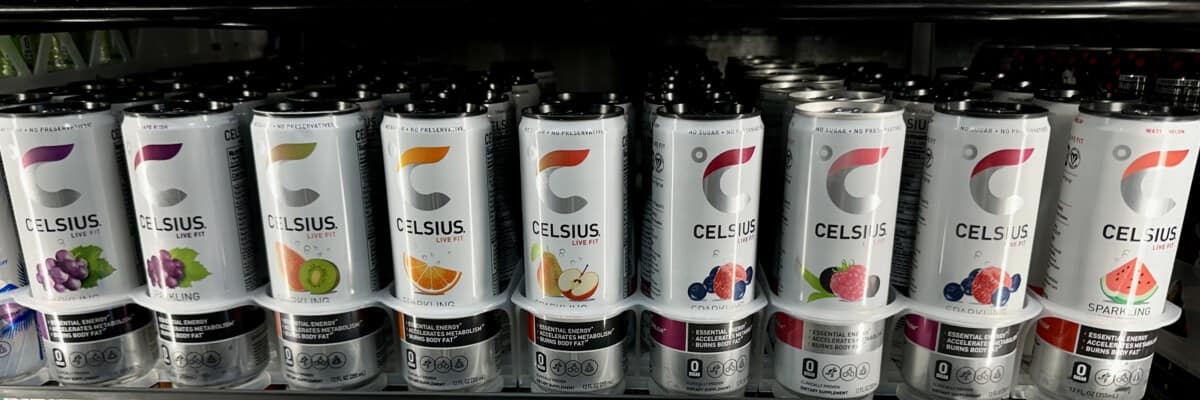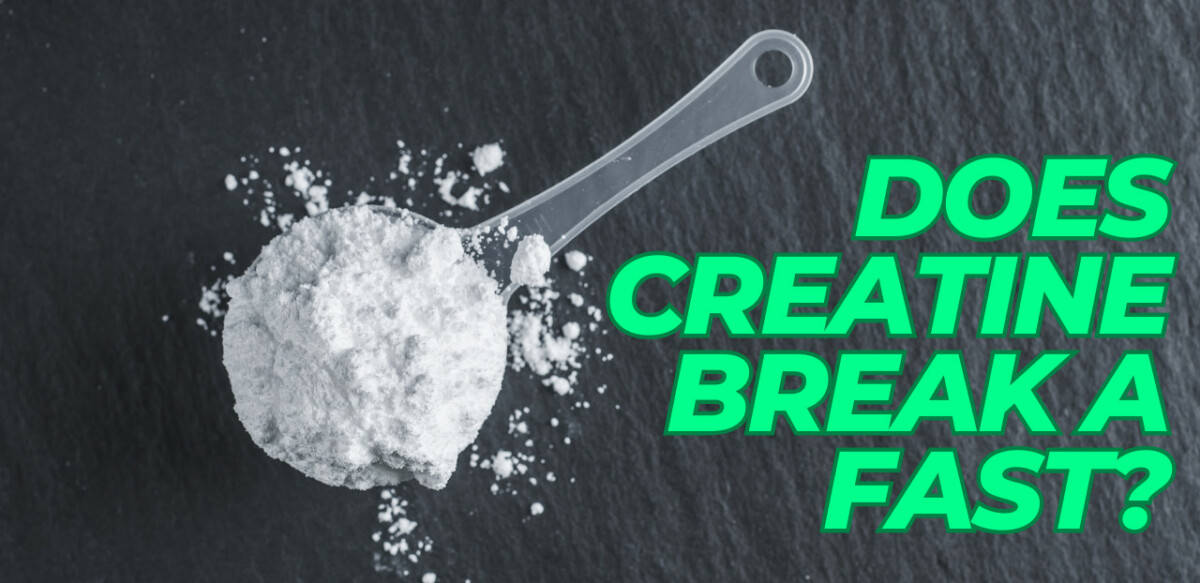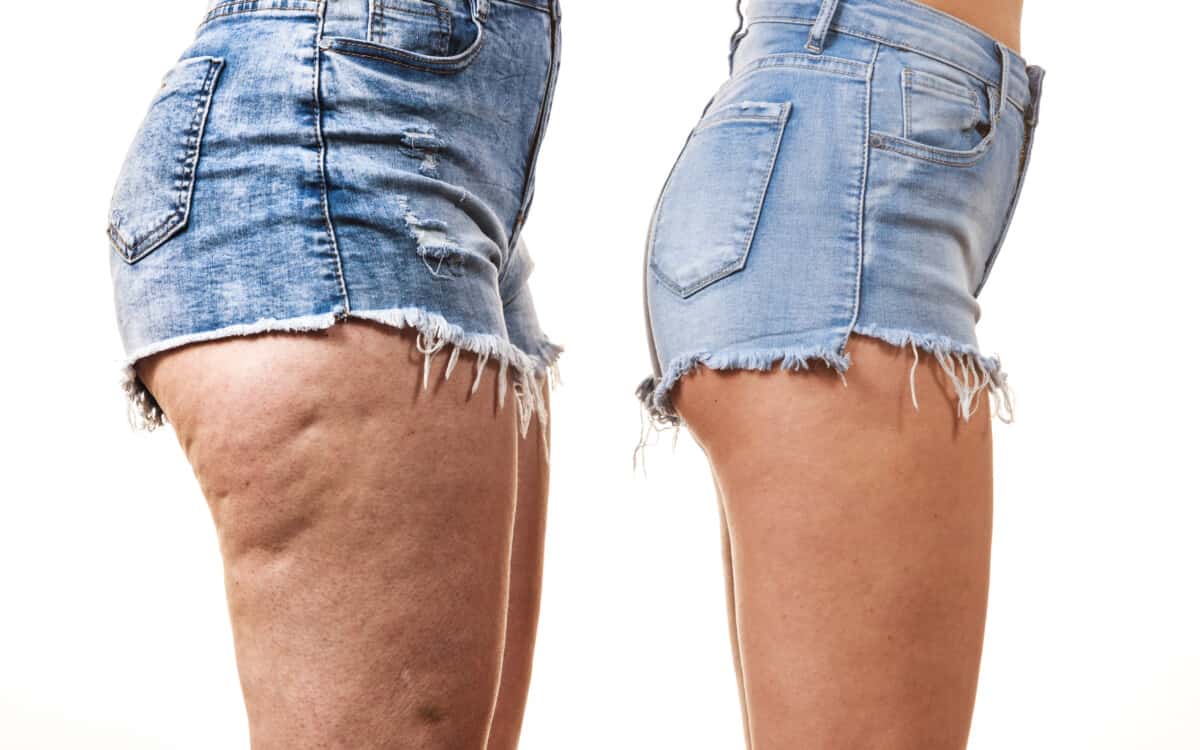If you’re looking for the best answer on how to lose water weight then I’m going to show you in 5 easy steps.
Now water weight itself isn’t usually dangerous but that doesn’t make it any less unwanted on your body. When you’re retaining water you’ll instinctively feel it everywhere.
It can feel like carrying water weight gain makes you look 10 pounds heavier than you actually are. And water retention on your body tends to go to the most unwanted of all places like your legs, face, arms, and belly.
I’ve been there after a weekend of fun on a Monday morning looking in the mirror to see a bloated puffed-out face. The good news I’m going to show you how to speed up the process of losing this unwanted water retention.
I like to call it… de-puffing!
But even if you’re sticking to your diet you could also be holding onto extra water poundage. This can make it incredibly frustrating and confusing when you step on the scale to weigh yourself.
So if you need to drop those 5-10 pounds of water bloat fast then I’ll show you how to do it. Then you can quickly get rid of the bloating and puffing in your body.
How Much Water Weight Can You Lose in a Day
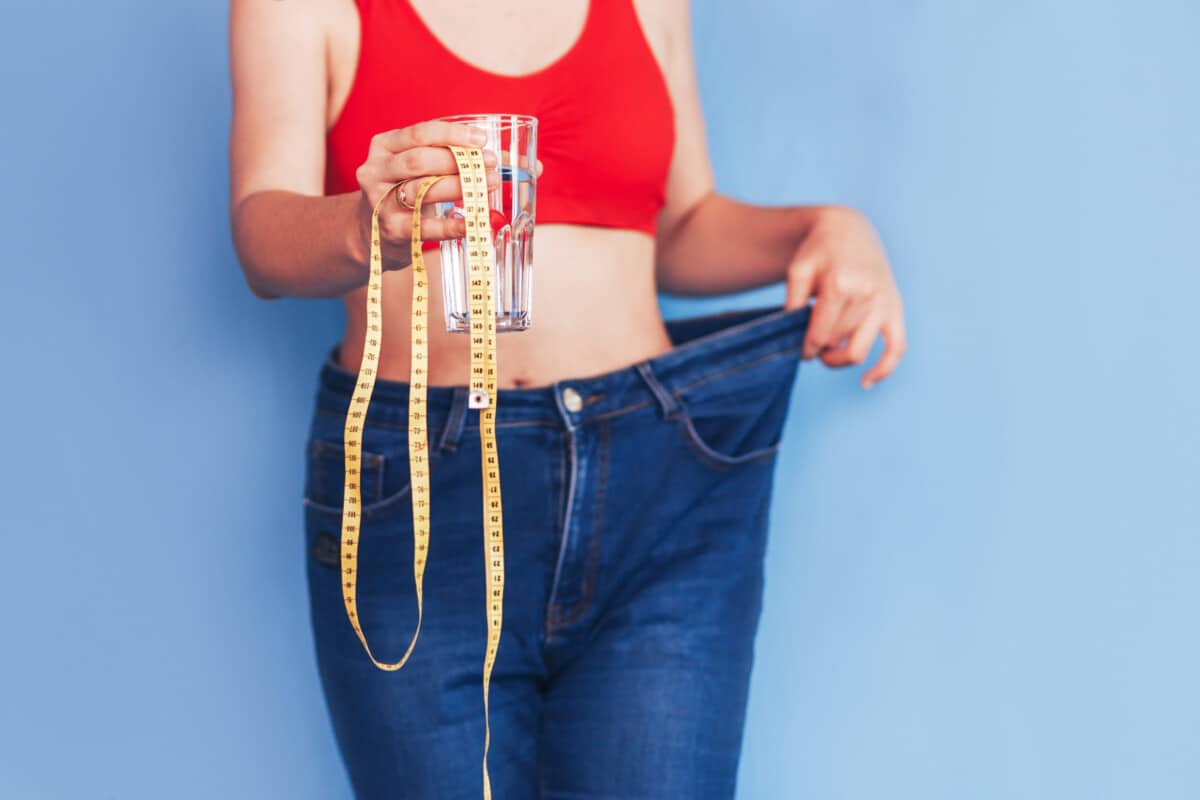
A telltale sign of retaining water is looking in the mirror and seeing your cheeks getting bigger. Now, this is the opposite of what most of us want in a sharp jaw bone and hollowed-out cheekbones.
Carrying water bloat is when your body is essentially holding onto fluids that would otherwise go to your kidneys. And of course, then it would eliminate through urination.
But instead of peeing out that fluid, your body pushes this water out to your skin and organs to hang onto. Many factors contribute to holding onto the water we’ll get into.
Since your body is made up of about 60% water you should know that fluid retention does not equal “fat weight.”
Usually, after a weekend of fun (eating and drinking poorly), your body can easily pack on up to 5 pounds of excess water. This is evident when you wake up Monday morning to swollen fingers, a bloated stomach, and stiff joints.
And since your bodyweight can easily fluctuate up to 5 pounds a day from water retention you have to be careful when weighing yourself. It can derail your motivation to not see your weight going down even though you’re dieting and exercising.
This is why it’s a good idea to track your progress by also measuring your body fat percentage, inches, and how your clothes fit.
How to Lose Water Weight Overnight
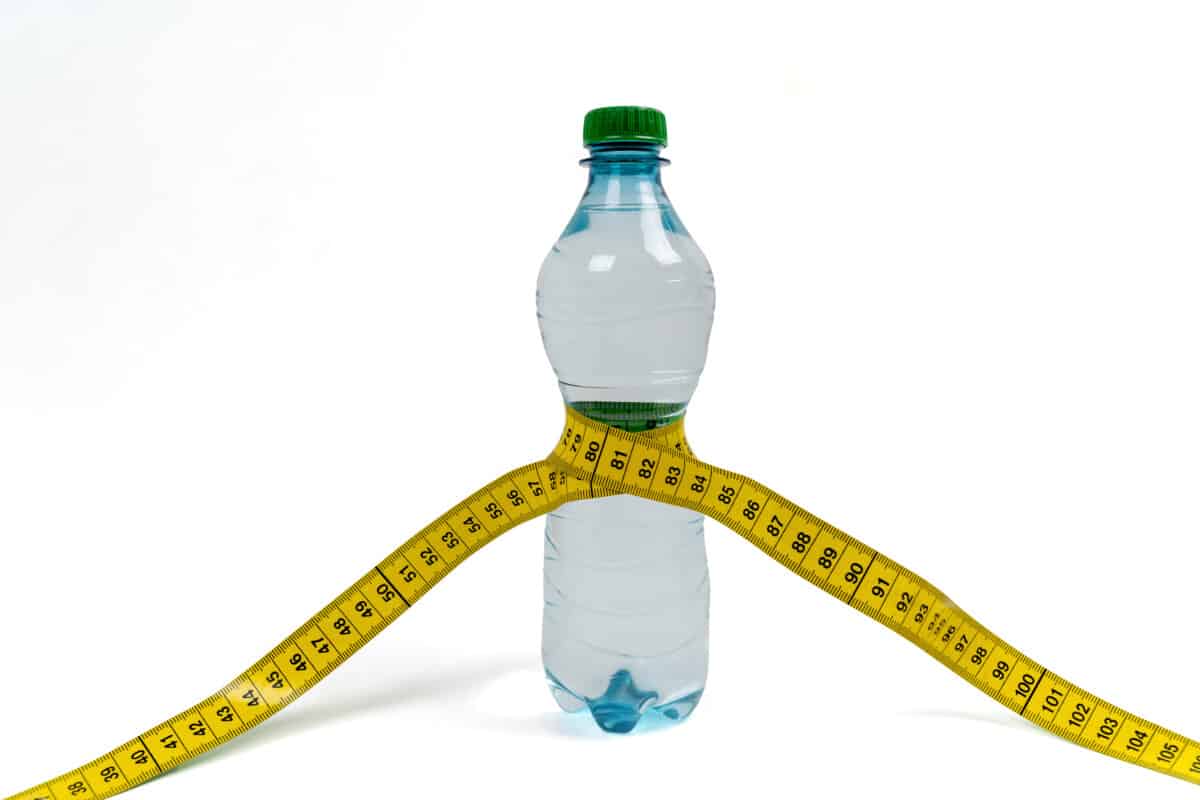
Now I already said losing water weight isn’t the same thing as losing fat weight. It’s much easier to lose that initial water retention than it’ll ever be to lose this same weight from fat.
And, indeed, you’ll quickly gain this water retention back if you slack too much off your diet and workout plan. But with that said let’s get into why it’ll be an easy win for you.
The weight you initially lose from starting a diet or exercise program will be mostly water (assuming you’re doing it right). Losing 5 pounds the first week is generally water bloat. But it can also give you a big motivational boost when getting started.
Here’s a study finding those who lose more weight, in the beginning, will end up having more motivation to keep going (1).
Simply cutting out processed foods will do wonders for losing excess water on your body. These junk foods generally contain high amounts of refined carbohydrates and salt. This is the perfect recipe for retaining water.
The more real whole foods you eat will also help you flush out that excess water weight gain. Real whole foods contain a high amount of antioxidants. And these antioxidants will neutralize damage caused by free radicals in your body. These free radicals can lead to fluid retention.
Plus real whole foods like bananas, sweet potatoes, and broccoli contain higher amounts of potassium. This vital mineral plays a huge role in balancing the fluids in your cells and can help to draw water-retaining sodium out of your body. It’s also one of the reasons why increasing your potassium is an effective way to lower your blood pressure.
Cut the Carbs
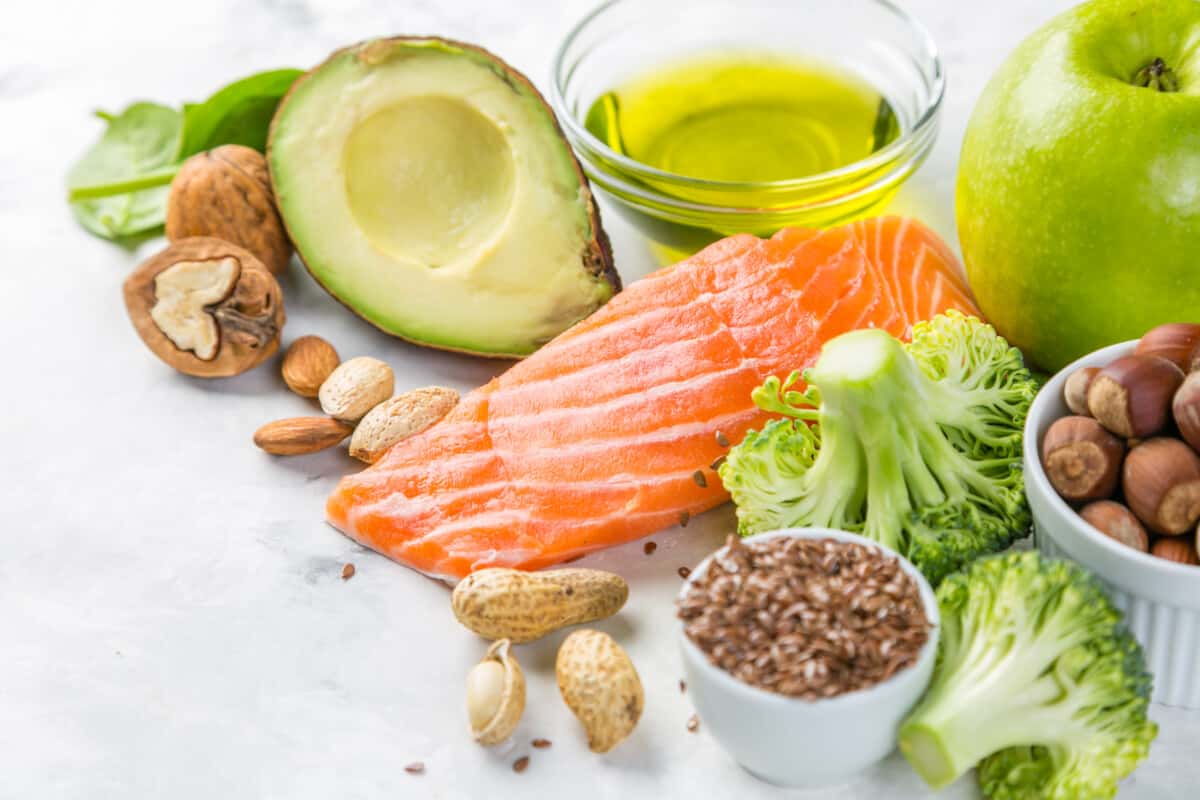
Going on a low-carb diet can be a powerful weight loss plan but it’s also great for flushing out the water in your body. When you have a high carbohydrate intake your body stores the glucose (sugar) in the form of glycogen in your body. Your body will then use these glycogen stores for energy in the future.
And each gram of glycogen in your body will hold onto 3-4g of water with it (2). So as you lower your carb intake you’ll also lower the amount of water-retaining glycogen in your body too.
This is one of the reasons low-carb diets are so beneficial. Your body will first burn off glycogen for energy rather than your fat stores. So as you lower the number of carbs in your diet your body will be forced to burn through more fat.
Plus the fewer carbs you’re eating the lower your insulin levels are going to be too. Having higher insulin levels in your body is also going to increase water retention by sodium reabsorption.
A quick trick to putting your body into “keto mode” is to combine Intermittent Fasting and C8-MCTs in the morning. These C8-MCTs are instantly converted by your body into ketones that signal for your body to start burning fat stores for energy. Keto Elevate contains a high quality form of C8-MCTs that I take and recommend. It mixes easily into coffee and tastes just like a delicious creamer.
Support Many of the Keto Benefits Associated With Increased Ketones, & Support Them FAST, but Without the Difficulty of Doing Keto...
Increase Ketone Levels Inside Your Body to Boost Metabolism, Elevate Energy & Enhance Mental Focus
- 3X Better Than Coconut Oil, Butter or MCTs
- Heightened energy levels
- Reduced cravings & appetite
- Graceful aging
- Healthy metabolism
- Increased mental clarity & focus
- Heightened physical performance and recovery
Drop the Salt
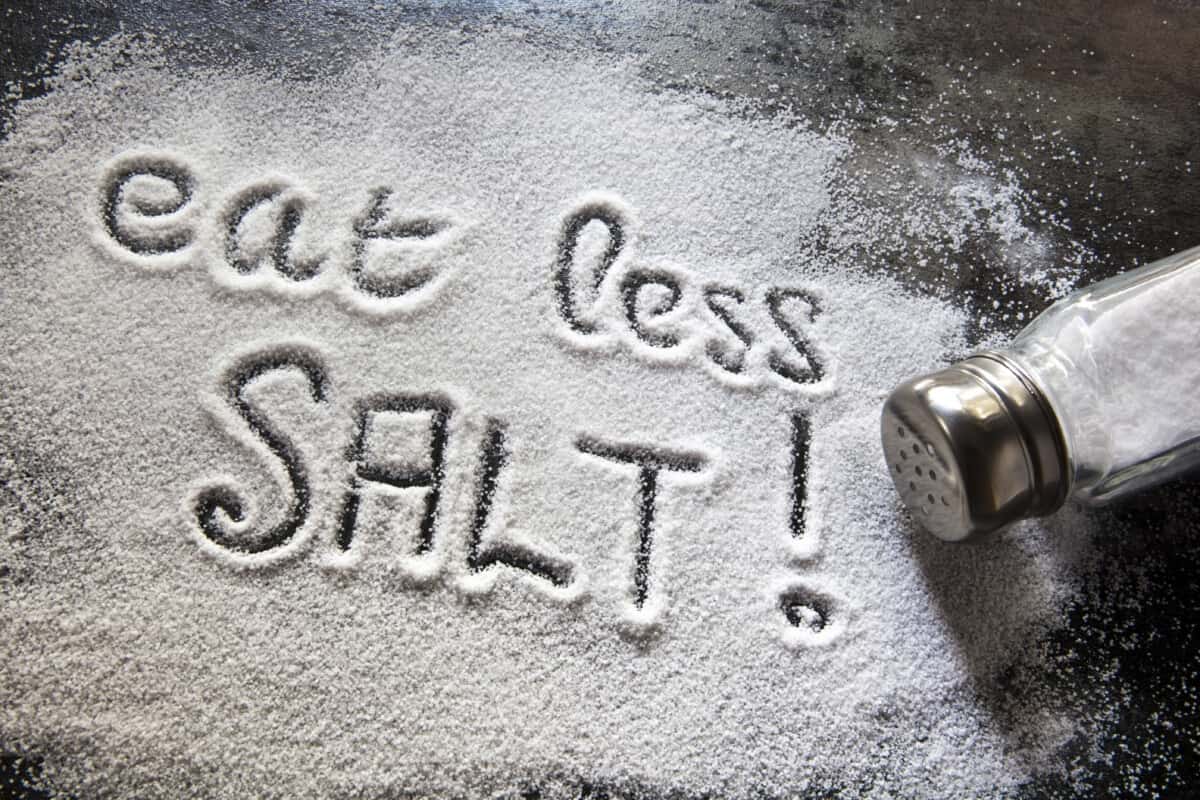
Sodium (salt) is going to be one of the biggest factors of you holding onto water bloat. So much so you can be doing everything else right but you’ll derail your progress if you’re eating too many salty foods.
If you ate a lot of tasty junk foods over the weekend then there’s a good chance it was high in sodium. A big increase in your sodium and salt intake can easily lead to you carrying more excess water (3).
There’s a reason why Gatorade and IV drips contain sodium. It helps the body absorb and retain the water. Which is great if you’re lying on a hospital bed but not if you’re trying to lose water retention.
The more dehydrated your body is the more likely sodium is going to cause you to hold onto water (4). But we’ll get more into this soon…
So one of the easiest things for you to do to lose water bloat is to reduce your sodium intake. It’s generally recommended to keep your daily sodium below 2000mg but if you can I’d try to keep it at least below 1500mg.
Magnesium oxide is another mineral that’s been found to be effective to get rid of excess water (5). Most people are deficient in this essential mineral. So most would benefit from taking a magnesium supplement. A lot of seeds, nuts, and leafy greens are rich in magnesium.
Sweat Out the Water Weight

Another trick is to go to the gym to simply sweat out that extra water poundage.
Working out for a good 1+ hours will do wonders to lose your water retention via sweating. Most people will simply go for a run or use a stairclimber machine but you can do any kind of workout that makes you sweat the most.
Studies have found people typically lose more than 2% of their body weight by exercising (6). This weight is from water and it’s lost through the fine art of sweating.
I remember when I was first learning how to be a personal trainer and we were taught this very lesson. A good tip would be to weigh yourself before and after your workout. Then the weight you lost could be recovered by drinking the same amount of water. But for our purposes, we want to get rid of that water retention.
Just be careful with weightlifting to get rid of the excess water as too intense of exercise can cause you to retain water. This is from your body swelling up as it repairs your damaged muscles.
You can also jump into the sauna to sweat out the water bloat too. Studies have found umping in the sauna for 20-30 minutes can have your body lose up to 5 pounds of pure water bloat (7).
So if you need to drop a few quick pounds to squeeze into a dress or suit then hopping in the sauna can help. Or you can use a sauna blanket at home like the one below if you don’t have access to a sauna.
Drinking More Water
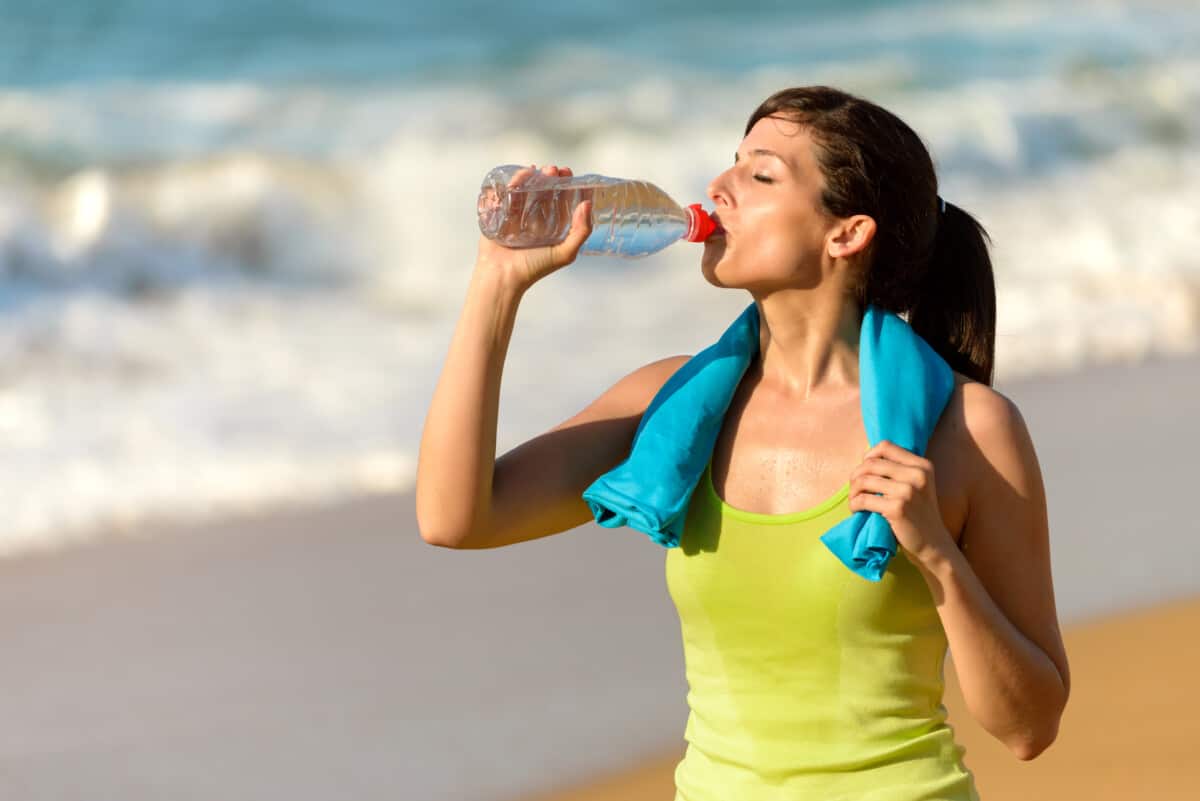
It might sound kinda crazy to hear drinking more water can help you lose water retention.
If you’re dehydrated then your body will naturally respond by holding onto more water (8). It does this as a survival instinct to prevent your body from becoming severely dehydrated.
So the more your body is holding onto water the less likely you are to lose it. This can easily be fixed by increasing your water intake to help reignite your body to flush out the water it’s holding onto (9).
As your body notices water coming in at a steady pace it’ll relax its grip. Then soon enough you’ll notice your body is getting rid of some of that water bloat it’s carrying.
How much water you should be drinking daily can differ based on several factors such as your gender, age, pregnancy, and if you’re breastfeeding. The CDC does recommend men to drink at least 3.7L of water and women to drink at least 2.7L (10).
An easy test it’s to check the color of your urine. “If it’s clear then that means you’re in the clear, but if it looks like apple juice then keep drinking water.”
Hidden Causes of Water Weight
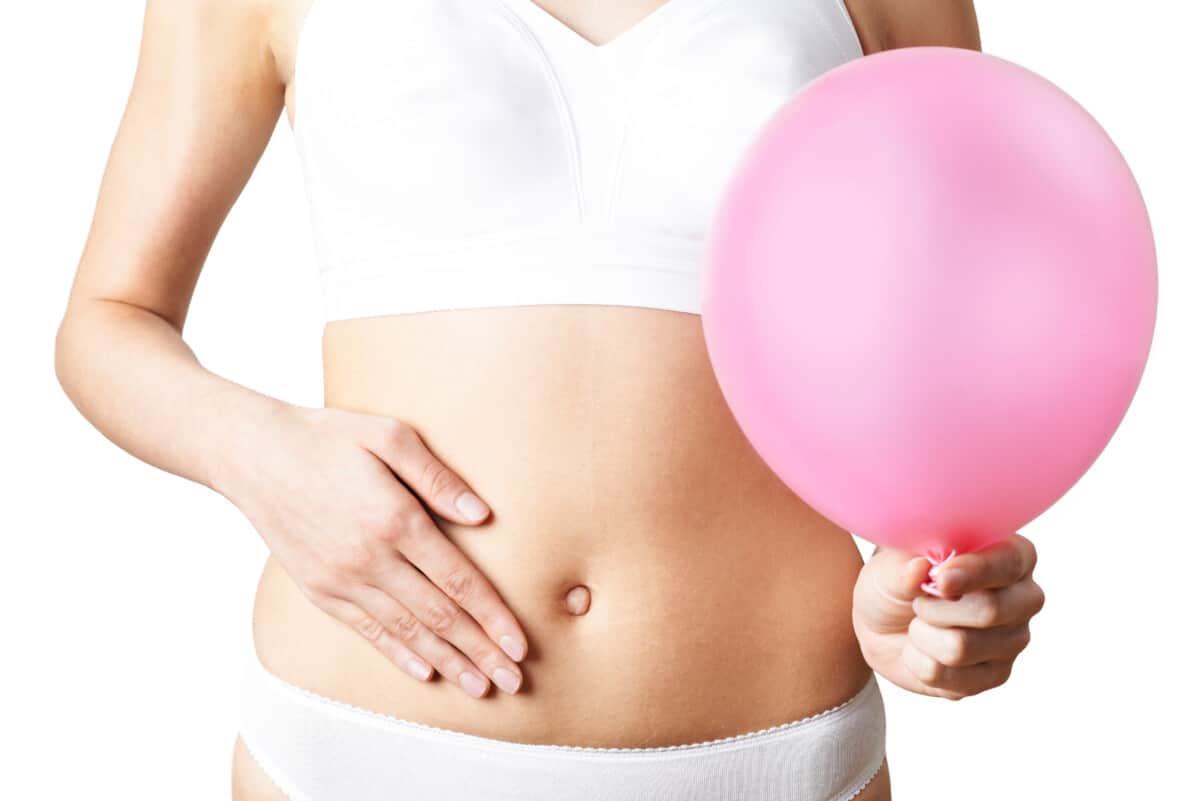
If you’re a woman then know you can hold onto 3-10 pounds of water leading up to the luteal phase of menstruation. It’s caused by a rise in hormones that are necessary during menstruation.
But you should flush out that water retention right after. This is one of the reasons I’ll let my female clients know they shouldn’t weigh themselves 10 days up to their period. It could throw off their results.
A tip to help flush out water retention is to supplement with the dandelion extract. Studies have found dandelion to be effective in treating water retention (11).
Chronically high-stress levels can also cause your body to hold onto excess water weight gain (12). Too much stress can cause your body to release high amounts of the stress hormone cortisol. And cortisol has been found to retain water (13).
One of the best ways to lose water bloat and to de-stress is to improve your quality of sleep. As you catch up on your sleep your body will respond by better controlling your hydration levels.
Taking a magnesium supplement or eating more foods high in it can help to lose water retention too (14). A trick bodybuilders use before a competition is to take a bath in magnesium-rich Epsom salt. Soaking in Epsom salt can help your body detox out some of the toxins that may be causing your retain water.
How many pounds of water weight can you lose?
This all depends on how much extra water you’re carrying in the first place. But generally, after a weekend of poor food and drink choices, you could easily lose around 5 pounds by flushing out the water bloat.
How do you know if it’s water weight?
The telltale signs of water weight are bloating, swollen fingers, appearing puffy, stiff joints, and bigger cheeks. If you have one or all of these symptoms then there’s a good chance you need to lose water retention.
The Last Word
Getting rid of water retention is something everybody should know how to do. Carrying excess water can cause a lot of mental demotivation as it can throw off your progress every time you step on the scale.
Plus nobody likes having the appearance of being bloated and puffy. Being able to lose water retention is an easy way to drop 5-10 pounds fast. You can find more ways to drop 10 pounds in a week here.
Doing a few simple steps can have your body flushing out that puffy water bloat fast. Just make sure you’re also not doing the things that cause you to retain water too. If you have a medical issue or health condition that causes these weight fluctuations then you can talk to your doctor about water pills.
Now that you know how to lose water weight in a day it’s time to get to work so you can flush it out today.
Josh holds a Bachelor’s degree in Exercise Physiology and Nutrition Science. He’s a Certified Strength and Conditioning Specialist (CSCS) by the National Strength and Conditioning Association and he’s a Certified Personal Trainer (CPT) by American Council on Exercise. He’s worked as a Strength and Conditioning Coach at the high school and college levels. He has over 15 years of experience as a personal trainer and nutrition coach. He strives to bring inspiration and results for people to live healthier lives through smart diet and exercise.







